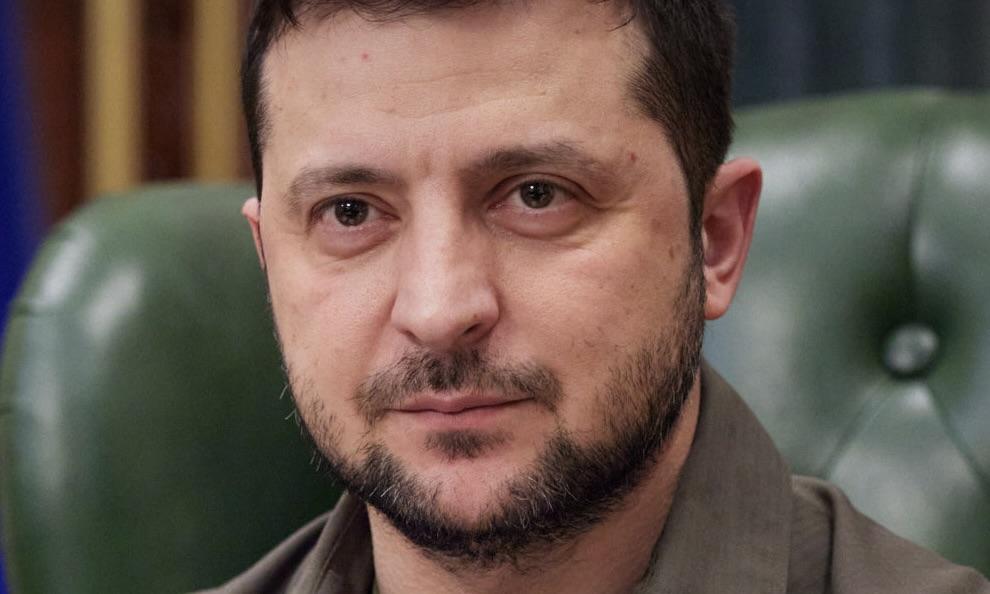Dmitry Medvedev, Russia's deputy chairman of the Security Council and a key ally of President Vladimir Putin, has reignited tensions by labeling Ukrainian President Volodymyr Zelensky an “illegitimate drug addict.” Medvedev made the inflammatory statement on Telegram, accusing Zelensky of prolonging Ukraine’s war efforts to maintain power under martial law.
“The regime will continue to insist on a total war to the last Ukrainian and drag out the elections as much as possible,” Medvedev wrote. He further alleged that Zelensky’s leadership is fueled by self-preservation and is illegitimate, given the indefinite postponement of elections under wartime conditions.
These remarks come as Ukraine remains under martial law, extended by Zelensky in late October, delaying presidential elections until at least February 2025. Medvedev’s comments align with a longstanding Kremlin narrative aimed at discrediting Zelensky amidst Ukraine's resistance to Russia’s invasion.
Polls and Public Sentiment
Medvedev’s critique followed the release of a poll by the Kyiv-based Social Monitoring Centre, indicating only 16% of Ukrainians currently support Zelensky for re-election. In contrast, 27% expressed a preference for Valerii Zaluzhnyi, Ukraine’s former military commander. Notably, the poll also revealed that 60% of respondents believe Zelensky should not seek another term.
The Kremlin has used these findings to amplify claims of waning support for Zelensky, portraying him as out of touch with public sentiment. However, experts have questioned the neutrality of polling data during wartime, suggesting that martial law and ongoing conflict may complicate accurate reflections of voter intent.
Debunked Allegations Resurface
Medvedev’s allegations echo earlier Russian propaganda. In 2022, pro-Russian accounts circulated doctored videos suggesting Zelensky used cocaine, a claim thoroughly debunked by independent fact-checkers like Reuters. Similarly, altered footage purportedly showing drug paraphernalia on Zelensky’s desk during a video call with Elon Musk was exposed as fabricated.
Additionally, Russian operatives have targeted Western audiences with disinformation campaigns. In one instance, U.S. actors were tricked into creating personalized videos, later manipulated to insinuate Zelensky’s alleged drug use. Analysts from the Microsoft Threat Analysis Center highlighted these tactics as part of broader efforts to delegitimize Ukraine’s leadership.
International Reactions to Medvedev's Statements
Medvedev’s remarks have sparked sharp responses. Ukrainian officials dismissed the accusations as baseless, emphasizing the Kremlin’s history of disinformation. Western analysts criticized Medvedev’s rhetoric as an attempt to erode international support for Ukraine by sowing doubt about its leadership.
On social media, reactions ranged from outrage to skepticism:
- @TruthSeeker: “Medvedev’s claims are laughable—just another desperate attempt to smear Zelensky and Ukraine.”
- @FreedomFirst: “Zelensky doesn’t need defending; his leadership speaks volumes. Medvedev’s words only highlight Russia’s insecurities.”
- @FactChecker2024: “These allegations have been debunked countless times. Russia’s disinformation machine is relentless but transparent.”
- @LibertyForUkraine: “Propaganda like this won’t change the truth. Zelensky remains a symbol of resilience against tyranny.”
- @NeutralObserver: “Medvedev’s statements might resonate with Kremlin loyalists, but the world sees through the facade.”
- @GlobalWatchdog: “Using outdated, fake claims shows how desperate Russia has become to undermine Ukraine.”



 Macron Urges Emergency UN Security Council Meeting as US-Israel Strikes on Iran Escalate Middle East Tensions
Macron Urges Emergency UN Security Council Meeting as US-Israel Strikes on Iran Escalate Middle East Tensions  Iran Supreme Leader Ayatollah Ali Khamenei Killed in Israeli, U.S. Strikes: Reuters
Iran Supreme Leader Ayatollah Ali Khamenei Killed in Israeli, U.S. Strikes: Reuters  Pentagon to Halt Ivy League Programs for U.S. Military Officers Starting 2026
Pentagon to Halt Ivy League Programs for U.S. Military Officers Starting 2026  U.S.-Israel Strike on Iran Escalates Middle East Conflict, Trump Claims Khamenei Killed
U.S.-Israel Strike on Iran Escalates Middle East Conflict, Trump Claims Khamenei Killed  USITC to Review Impact of Revoking China’s PNTR Status, Potentially Raising Tariffs on Chinese Imports
USITC to Review Impact of Revoking China’s PNTR Status, Potentially Raising Tariffs on Chinese Imports  Russia Signals Openness to U.S. Security Guarantees for Ukraine at Geneva Peace Talks
Russia Signals Openness to U.S. Security Guarantees for Ukraine at Geneva Peace Talks  Pakistan-Afghanistan Tensions Escalate as Taliban Offer Talks After Airstrikes
Pakistan-Afghanistan Tensions Escalate as Taliban Offer Talks After Airstrikes  HHS Adds New Members to Vaccine Advisory Panel Amid Legal and Market Uncertainty
HHS Adds New Members to Vaccine Advisory Panel Amid Legal and Market Uncertainty  Netanyahu Suggests Iran’s Supreme Leader Khamenei May Have Been Killed in Israeli-U.S. Strikes
Netanyahu Suggests Iran’s Supreme Leader Khamenei May Have Been Killed in Israeli-U.S. Strikes  ICE Hiring Surge Raises Vetting Concerns Amid Rapid Expansion
ICE Hiring Surge Raises Vetting Concerns Amid Rapid Expansion  Argentina Senate Approves Bill to Lower Age of Criminal Responsibility to 14
Argentina Senate Approves Bill to Lower Age of Criminal Responsibility to 14  Denver Mayor Orders Police to Protect Protesters, Restricts ICE Access to City Property
Denver Mayor Orders Police to Protect Protesters, Restricts ICE Access to City Property  Dominican Republic Unveils Massive Rare Earth Deposits to Boost High-Tech and Energy Sectors
Dominican Republic Unveils Massive Rare Earth Deposits to Boost High-Tech and Energy Sectors  U.S.-Iran Nuclear Talks Show Progress but No Breakthrough Amid Rising Military Tensions
U.S.-Iran Nuclear Talks Show Progress but No Breakthrough Amid Rising Military Tensions  Israel Launches Fresh Strikes on Iran After Death of Supreme Leader Ayatollah Khamenei
Israel Launches Fresh Strikes on Iran After Death of Supreme Leader Ayatollah Khamenei  Trump Launches Operation Epic Fury: U.S. Strikes on Iran Mark High-Risk Shift in Middle East
Trump Launches Operation Epic Fury: U.S. Strikes on Iran Mark High-Risk Shift in Middle East  Trump Floats “Friendly Takeover” of Cuba as Rubio Reportedly Engages in Talks
Trump Floats “Friendly Takeover” of Cuba as Rubio Reportedly Engages in Talks 































